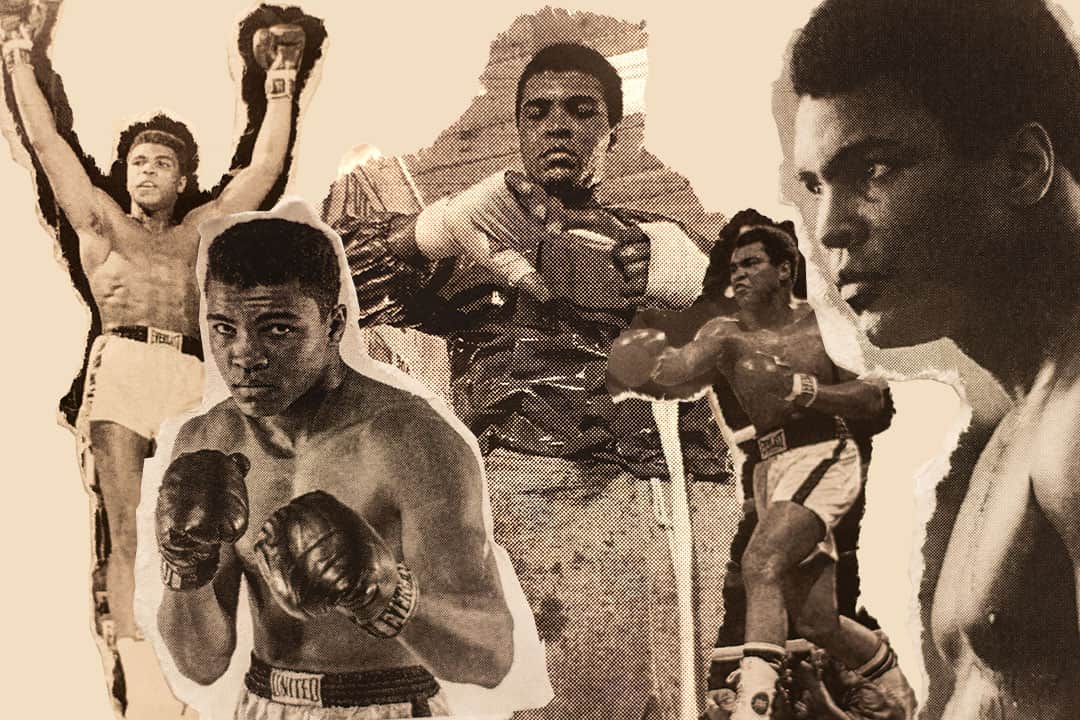“If you want to lose your money, then bet on Sonny, because I’ll never lose a fight. It’s impossible. I’m too fast; I’m the king.”
These were the proud words of Muhammad Ali — previously known as Cassius Clay — before his legendary fight against Sonny Liston, where he would go on to win his first Boxing World Heavyweight Championship in 1964.
In one of the premier underdog triumphs in sports history, Ali stunned the world. But this wouldn’t be his last time defying the odds.
Boxing’s finest
The boxing world would be changed forever when a thief stole a 12-year-old Ali’s bike. Infuriated, he told Joe Martin, a police officer, about his desire to beat up the thief. Martin, however, offered an alternative solution: that Ali should learn how to box.
He began participating in amateur boxing fights, but at 18 years old, he represented the United States at the 1960 Summer Olympics in Rome, bringing home the Gold Medal in the light heavyweight division.
Ali saw early professional success in 1964 with his momentous victory over Liston. Within a day after his triumph announced that he had joined the Nation of Islam — a movement and organization that combined elements of Islam with Black nationalism — and changed his name to Cassius X. The letter representing the unidentified name was taken away from his family by enslavers. A year later, Elijah Muhammad, the leader at the time of the Nation of Islam, named him Muhammad Ali.
Ali would continue to dominate the boxing world with his notable quick feet and hands that put the world on notice. He would go on to defeat Joe Frazier in 1974 and earn his spot to compete for the world heavyweight championship against George Foreman.
In what would be regarded as one of the greatest sports spectacles, “Rumble in the Jungle,” Ali and Foreman battled it out in Kinshasa, Zaire — now the Democratic Republic of the Congo. Before the match, Ali delivered his famous trademark in his usual expressive tone: “Float like a butterfly, sting like a bee, his hands can’t hit what his eyes can’t see.”
It turned out exactly how Ali predicted. In the eighth round of the fight, Ali unleashed consecutive right-hand hooks, dropping Foreman to the floor, which electrified the Kinshasa crowd and cemented his place as boxing’s crown jewel.
A civil rights leader
While Ali was still in the prime of his career at 25 years old, he was drafted to serve in the military during the Vietnam War in 1967.
Ali, standing up for what he believed was true, opposed the draft. “My conscience won’t let me go shoot my brother, or some darker people, or some poor hungry people in the mud for big powerful America,” he explained in a press release. “Shoot them for what? How can I shoot them poor people? Just take me to jail.”
He would consequently be stripped of his passport, boxing license, and face a five-year prison term. This didn’t discourage him, however, as he used this as an opportunity to align himself with human rights activist Malcolm X. He began to appear on college campuses, speaking against the Vietnam War, becoming an anti-war symbol.
Ali opened the platform for other African Americans to voice their opinions — notably, NBA legends Bill Russell and Kareem Abdul-Jabbar and NFL legend Jim Brown who organized a meeting to support Ali’s refusal to fight in Vietnam.
The sacrifice of Ali and the others who followed paved the way for freedom not only for the current generation of Black athletes but for all people of colour. Ali’s boxing career made him a legend, but his bravery outside the ring made him a hero.


